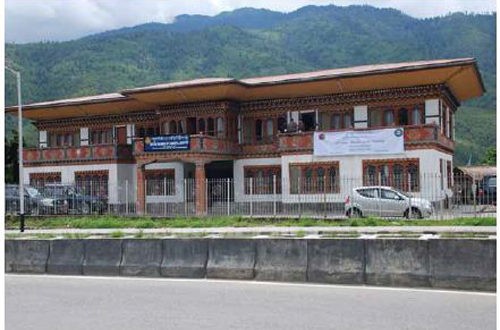The chairman of FIAB, however, claimed that financial institutes must abide by the rules and policies
The president of the Construction Association of Bhutan (CAB), Trashi Wangyel proposed and requested three clarifications from the Financial Service Providers (FSPs) during the second round of discussion held on July 18 between the private sector and the chief executives of financial institutions following the notification from the Royal Monetary Authority (RMA) on the 4th phase of monetary measures.
The first clarification he sought was regarding third-party collateral.
He said that third-party collateral is not prohibited by written RMA rules or policies. “But it appears that financial institutions are not currently accepting third-party collateral.”
“Since most of the contractors’ assets are located 80% outside of Thimphu and Phuentsholing, the value of such assets would decline over time, resulting in small amounts of loans. When contractors receive large projects like hydropower and all, it becomes problematic and they must request third-party collateral when applying for loans,” he said.
Therefore, the CAB’s president requested the FSPs to approve third-party collateral and urged them to have faith in the country’s judicial system if any legal complications arise.
The chairman of the Financial Institutions Association of Bhutan (FIAB), Karma responded that only members of the immediate family such as spouse and siblings would be permitted.
“Many people have put their friends or relatives’ assets as collateral and when the legal issues come up later, the ultimate loss is borne by the banks,” he said.
He added that numerous banks have suffered losses as a result of good-faith-based trust.
Therefore he stressed that they must be extremely clear that it would only be between immediate family members as discussed with the RMA.
The second suggestion of the CAB’s president is to get working capital in term loans that were equivalent to Over-Draft (OD)
“While most of the construction employees have converted their ODs to term loans, some have raised the concern that they were informed that while availing the service of converting OD to a term loan, they will no longer be eligible for working capitals,” he said.
The chairman of FIAB, however, claimed that financial institutes must abide by the rules and policies.
“The working capital is to fund the company’s everyday operation and to fulfill current liabilities as they arise. Term loans are something they must pay because, under term loans, cash flows occur at fixed times like every six or three months or so,” he said.
Additionally, the CAB president also asked the bank to consider deferring loans for the construction sector in light of the circumstances with individual borrowers and to keep the deferment of loans flexible in light of the circumstances.
According to the fourth phase of monetary measures, the construction sector is under the moderate level, where low repayment can be deferred for up to one year and partial repayment (50% of installments) for up to one year.
However, the FIAB’s chairman made it clear that for the time being, the loan term deferment under moderate level is for one year and they would subsequently review the situation as it changes, if necessary.
“The RMA has asked to do loan structuring in six months so it should happen in six months only, let us all understand that from here onwards we move on based on the rules and regulations,” he added.
Finance Minister Namgay Tshering, who headed the second round of discussion, said, “We need to sit together, talk with RMA and find an applicable means to come to a solution.”
Tshering Pelden from Thimphu













